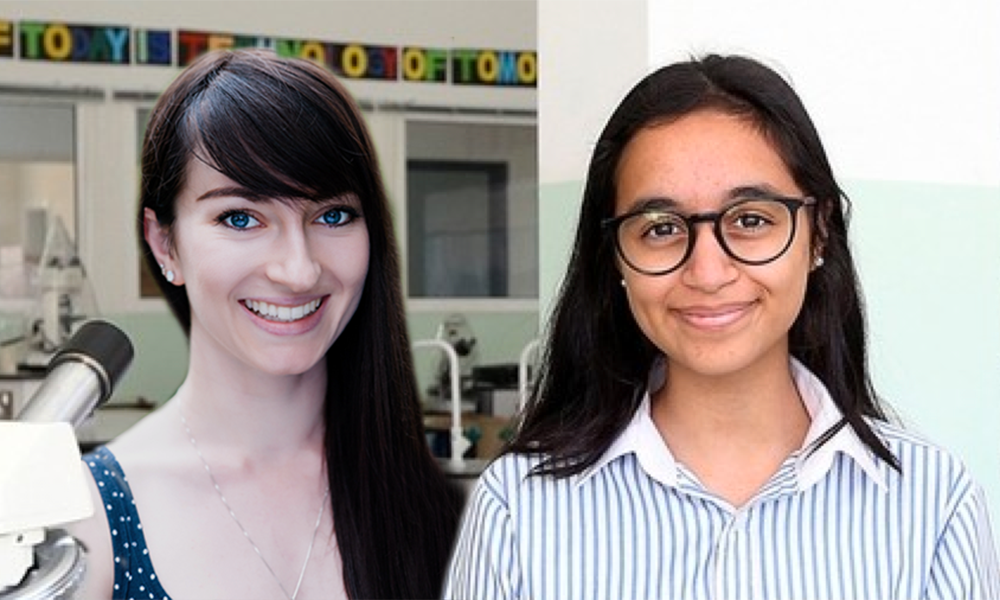Fourteen-year-old Alia Al Mansoori of the United Arab Emirates (UAE), with help from her Harvard mentor Tessa Montague, has won the 2017 UAE Genes in Space competition. The contest challenged students in grades 7-12 to design a polymerase chain reaction (PCR) experiment that could be performed in orbit on the International Space Station (ISS). As one of the five finalists, Mansoori was paired with mentor Montague, a graduate student in the Schier Lab, to refine her proposal and prepare her presentation for the Global Space Congress in Abu Dhabi.
Montague was initially brought to the program by Harvard’s Life Sciences Outreach Program Coordinator Alia Qatarneh, who introduced her to Sebastian Kraves and Zeke Alvarez Saavedra, the founders of portable DNA laboratory device company miniPCR. The Genes in Space program is co-sponsored by Boeing and miniPCR, who supplied the finalists with their own miniPCR DNA Discovery Systems to allow them to perform PCR experiments in school.
“For this competition they asked if I would be one of the five Harvard/MIT mentors who work with each of the five finalists,” Montague said. “I asked if I could be matched with a girl, as I want to get more involved in mentoring women in science. We were matched together in November, and started Skyping each week to prepare her for the competition. I was really impressed by Alia’s ability to grasp these complex concepts quickly, and her enthusiasm for science and the mysteries of outer space,” Montague said.
“My inspiration for my project was the fact that I would be sending my very own project to the International Space Station!” Mansoori said. “By having my idea conducted in space I would be making a contribution to help astronauts and human deep space travel.”
“Alia’s experiment is designed to learn about the role of heat shock proteins (HSPs) in outer space,” Montague said. “HSPs provide protective roles to cells, for instance after exposure to UV radiation or heat. Alia proposed to find out if one of the genes encoding an HSP is induced upon entrance into outer space, and to find out if the gene gets mutated in space. All of these experiments would be performed on C. elegans worms, which means Alia would also look at the effect of space exposure, and HSP induction, on the lifespan of worms.”
Mansoori, Tessa and the miniPCR team are now simplifying the experiment so it meets the requirements of the ISS, and Mansoori is planning on attending the launch that will send her experiment into space. The launch is scheduled for October of this year, when Montague and Mansoori will finally meet in person.
“Winning made me feel as though I made my country proud and I feel very excited for what’s to come in the future,” Mansoori said. “I am not only going to be sending my project to space, but I will also be taking a step closer to achieve my ultimate dream and goal, which is to become an astronaut and be among the first astronauts to go to Mars!”
by Mary Parker



